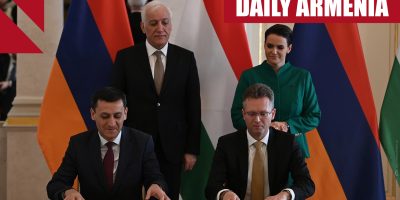Turkey’s President Recep Tayyip Erdogan has very complex relations with jihadist groups in Syria and Iraq, including ISIS, therefore he wanted to have a free hand in the policies he adopted without any media scrutiny, says Geneva based political analyst Vicken Cheterian when asked why Turkey imposed a media blackout following the kidnapping of its Mosul consulate staff.
Erdogan is trying and largely succeeding in controlling the Turkish media, and this is not an exceptional situation. Erdogan wants his message to pass through the media and any critical views are not tolerated, he added.
“Now that the 49 kidnapped Mosul Turkish consulate team were released, one of the major justifications for Erdogan for not joining the US led anti-ISIS coalition has fallen, there won’t be a major shift in Turkish policies. Because Turkish policies towards Syria and Iraq were not conditioned by the kidnapping of the consulate team,” Cheterian said.
However, according to the analyst, Turkey’s position about the US led military intervention in Iraq and Syria is very ambiguous, because Turkey sees that its competitors — Iran, the Syrian regime and the Shiites — who are in power in Iraq, will profit from this intervention, just like in 2003, when the US invaded Iraq. As a result, Turkey is trying to negotiate with Washington to get a certain price for its support of the coalition and it might be direct Turkish intervention in Syria at least. Turkey is trying to find its new place in this reality, says the Geneva based analyst.
“The behavior of ISIS is nothing new. There is a very strong continuity going back to the late Ottoman years, especially during the First World War. We all know very well what happened to the Armenians, because it is very well detailed, studied and documented, But we know less about the Yezidis and Assyrians who suffered similar atrocities. We see today that the same is happening to them.” According to Cheterian, for the last 99 years, there has been continuous atrocities against what society considered to be minorities. For example the Kurds themselves became victims of similar atrocities in Turkey in the 1920s and 1930s. In Iraq, the Assyrians, Yezidis, Kurds, Turcomans, became victims of similar atrocities by the central government, not to mention the Iraqi Jews, who were chased out from Baghdad. “We have certain mechanisms of violence created during the First World War that are massive in scale, and no one in the region dismantled these mechanisms. No one in the region said that this behavior is criminal and should be punished and stopped. So we have a very fluid continuity between late Ottoman genocides and what ISIS is doing today,” said Cheterian referring to an atmosphere of impunity that allows such crimes to keep repeating themselves.
















